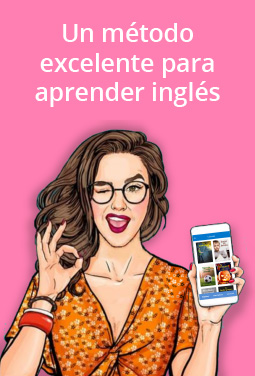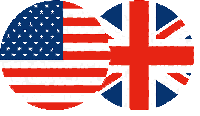1. Las preguntas indirectas
Las preguntas indirectas se utilizan para pedir información o preguntar de manera educada.

Can you tell me where Dr. Holt's surgery is?
¿Puede decirme dónde está la consulta del Dr. Holt?

Can you tell me if this bus goes to the centre?
¿Puede decirme si este autobús va al centro?
Anuncios
2. Características de las preguntas indirectas
- Las preguntas indirectas van precedidas por una frase introductoria. Algunas de dichas frases pueden ser:
Expressions Could you tell me...? ¿Podría decirme...? Do you know...? ¿Sabe...? I was wondering... Me preguntaba... Do you have any idea...? ¿Tiene idea…? I'd like to know… Me gustaría saber… Do you happen to know…? ¿Por casualidad sabe…? - Las preguntas indirectas no siguen el orden establecido para las preguntas directas:
Verb tense Direct question Indirect question Question word + Verbo Auxiliar + Sujeto + Verbo principal Question word + Sujeto + Verbo principal Present to be Where is Mary? ¿Dónde está Mary? Do you have any idea where Mary is? ¿Tienes idea de dónde está Mary? Present simple What time does the film start? ¿A qué hora empieza la película? Do you happen to know what time the film starts? ¿Por casualidad sabe a qué hora empieza la película? Present continuous Why is he working today? ¿Por qué está trabajando hoy? I'd like to know why Mike is working today. Me gustaría saber por qué Mike trabaja hoy. Past to be When was her daughter born? ¿Cuándo nació su hija? I was wondering when her daughter was born. Me preguntaba cuándo nació su hija. Past simple How did you meet? ¿Cómo os conocisteis? I'd like to know how you met. Me gustaría saber cómo os conocisteis. Past continuous Who was she talking to? ¿Con quién hablaba? Do you happen to know who she was talking to? ¿Por casualidad sabes con quién hablaba? Present perfect How long have you known him? ¿Cuánto tiempo hace que le conoces? I was wondering how long you have known him. Me preguntaba cuánto tiempo hace que le conoces. Past perfect How long had you had your car? ¿Cuánto tiempo hacía que tenias el coche? I'd like to know how long you had had your car. Me gustaría saber cuánto tiempo hacía que tenías el coche. Future will When will the meeting finish? ¿Cuándo terminará la reunión? Could you tell me when the meeting will finish? ¿Podría decirme cuándo acabará la reunión? Future going to What is she going to do with her car? ¿Qué va a hacer con el coche? Do you know what she is going to do with her car? ¿Sabes qué va a hacer con el coche? Future continuous What will you be wearing at the graduation? ¿Qué llevarás a la graduación? Do you know what you will be wearing at the graduation? ¿Sabes lo que te vas a poner en la graduación? Future perfect How will life have changed by 2100? ¿Cómo habrá cambiado la vida en el 2100? I'd like to know how life will have changed by 2100. Me gustaría saber cómo habrá cambiado la vida en el 2100. Modals When must we hand in the essay? ¿Cuándo tenemos que entregar el trabajo? Could you tell me when we must hand in the essay? ¿Podría decirme cuándo tenemos que entregar el trabajo? - Cuando una pregunta directa no tiene question word, es decir, que es una pregunta cuya respuesta es un sí o un no, se sigue la siguiente estructura:
If / whether + sujeto + verbo principal
Pregunta directa: Does the museum open on Mondays?
Pregunta indirecta: Could you tell me if/whether the museum opens on Mondays?
![]() Could you tell me if this place is far from here?¿Podría decirme si este lugar está lejos de aquí?En el primer ejemplo, la pregunta original sería Is this place far from here?
Could you tell me if this place is far from here?¿Podría decirme si este lugar está lejos de aquí?En el primer ejemplo, la pregunta original sería Is this place far from here?![]() I was wondering if you've read my report.Me preguntaba si ha leído mi informe.En el segundo ejemplo sería Have you read my report?
I was wondering if you've read my report.Me preguntaba si ha leído mi informe.En el segundo ejemplo sería Have you read my report?Al igual que las preguntas introducidas por una question word, en este otro tipo de preguntas también se invierte la estructura.
En presente simple y en pasado simple se utiliza auxiliar para hacer la pregunta, pero este auxiliar no se utiliza en oraciones afirmativas. Así, en presente, hay que recordar poner la S al verbo cuando la persona sea he / she / it. En pasado, el verbo deberá ponerse en pasado.
Pregunta directa:
Where does Mary work?¿Dónde trabaja Mary?Why did you decide to move?¿Por qué decidiste mudarte??Pregunta indirecta:
Do you know where Mary works?¿Sabes dónde trabaja Mary?I'd like to know why you decided to move.Me gustaría saber por qué decidiste mudarte.
Anuncios
¡Recuerda!
Las preguntas indirectas nos sirven para hacer preguntas de manera educada.
| Estructura | |
|---|---|
| Con question word | Question word + sujeto + verbo principal |
| Do you know what John is doing? ¿Sabes lo que John está haciendo? Can you tell me where John lives? ¿Puedes decirme dónde vive John? | |
| Sin question word | If / whether + sujeto + verbo principal |
| Do you know if we need our passports? ¿Sabes si necesitamos nuestros pasaportes? Would you mind telling me whether it's raining outside? ¿Te importaría decirme si está lloviendo afuera? | |
Compartir:




 Leer en Inglés
Leer en Inglés


